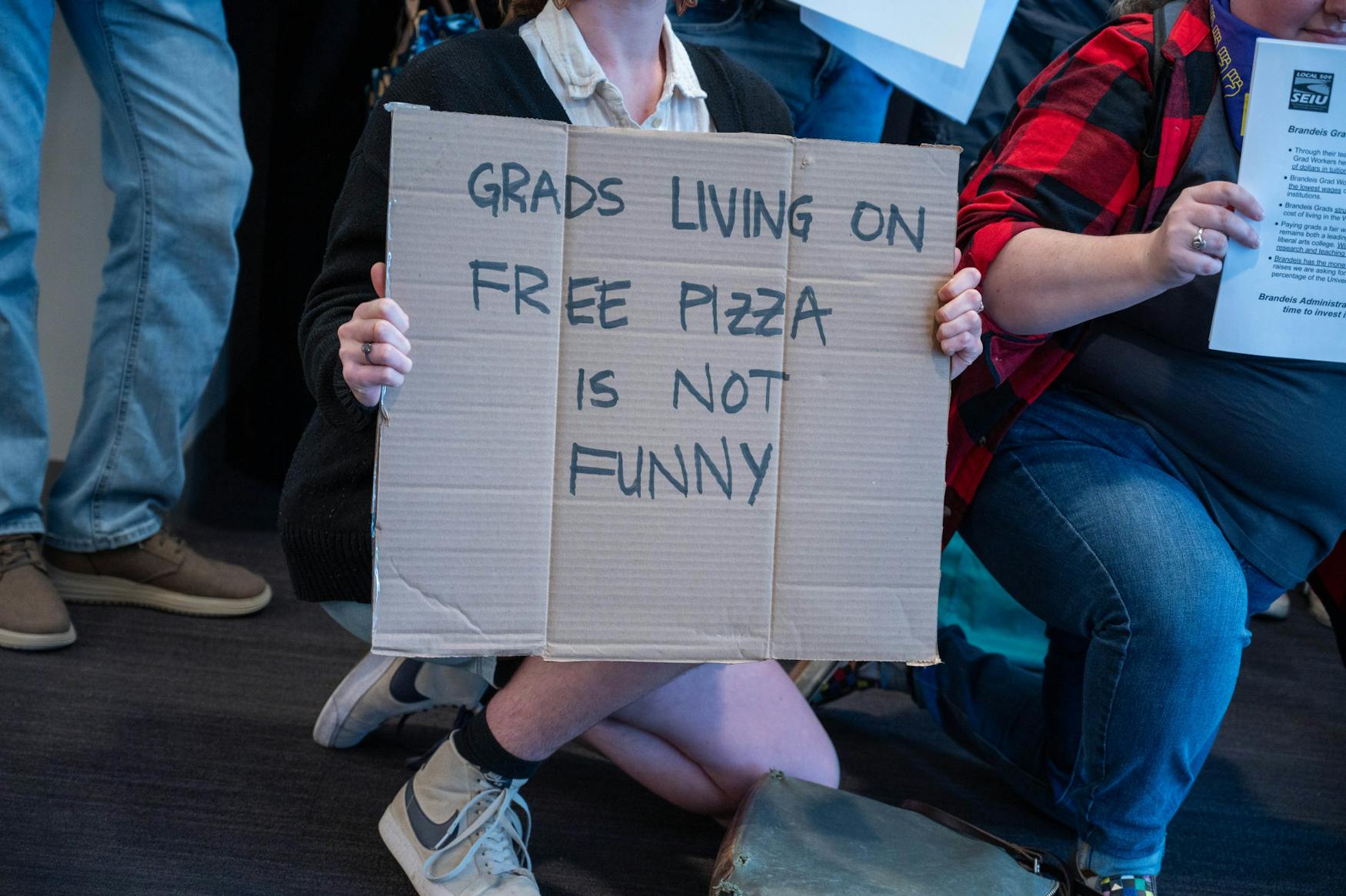Brandeis graduate workers reach new contract agreement after months of demonstrations and negotiations
A new agreement with the University enables student workers to focus on their studies and research.
Brandeis graduate students play an integral role as teaching assistants, researchers, and mentors, yet their experience is markedly different from that of undergraduates. While essential services like housing, meal plans, and comprehensive health insurance are often considered in undergraduate tuition, graduate students frequently find themselves navigating a more challenging experience at Brandeis. Graduate students, despite their importance to the University's academic operations, lack the same support systems that are readily available to their undergraduate peers. Many graduate students have voiced concerns that these disparities stem from a non-competitive union contract compared to comparable institutions. However, this sense of insecurity may be reduced with a new union contract.
On Sept. 23, Brandeis’ Service Employees International Union Local 509, which represents educators, part-time faculty, PhD student teaching assistants, and teaching fellows, announced on Instagram that it had reached a tentative contract agreement with the University. The news comes three months after the initial expiration date of the old contract, which was June 30, 2024 and was later extended to Sept. 20.
According to the union’s Instagram, the newly agreed-upon contract includes a wage increase, expanded child care stipend, increased paid parental relief period and workload protections. Notably, it also guarantees contract protection for workers assigned to research groups. Previously, the 2021-2024 Collective Bargaining Agreement only covered graduate students working as teaching assistants or teaching fellows, leaving graduate researchers — who face similar housing, food and financial insecurities — without protections.
In Sept. 2023, graduate researchers publicized their intent to unionize, seeking to address these disparities. Their efforts to unionize started in 2020 but a plan wasn’t voted forward with the National Labor Relations Board until Sept. 2023. Graduate students unionized in the spring 2024 semester and now are part of SEIU Local 509. They joined alongside TAs and TFs during this year's bargaining sessions.
All union members are now guaranteed a minimum salary of $42,000, representing a significant improvement over the previous range of $21,000 to $36,000. Graduate workers who are parents will also receive a guaranteed $1,500 for childcare and an extended paid parental leave period, increasing from eight weeks to twelve weeks. According to the Massachusetts Institute of Technology’s Living Wage Calculator, to live in Middlesex County, one adult without children would need to make $53,957, after taxes. Although the new salary makes it more manageable to address financial burdens, it still remains below what MIT calculates as sufficient income to live in the Greater Boston area.
The bargaining unit also developed stronger language and guidelines regarding workload, particularly for lab workers who have been called in on weekends and holidays. According to Cat Rosch, a TA, History PhD candidate and union steward, individual workload and when a research assistant can be called in was previously left to the discretion of the lab supervisor. Now, graduate research assistants can only be called in during holidays — such as Christmas, New Year's and other religious observances — if there's an urgent issue, like a critical experiment in jeopardy or malfunctioning equipment. There are now strict regulations on how soon after being called in during a holiday a worker must be compensated with a make-up holiday.
On Sept. 24, the union conducted two contract information sessions and between Sept. 25 and 26; all members were given the opportunity to participate in the ratification vote. According to Rosch, over 150 Members voted on the agreement and 98% of the members who casted a vote voted in favor of it.
“I'm really glad to see people who weren't part of the union before get union membership and get the protections,” Rosch said while reflecting on the negotiation process. She amplifies the continually expressed sentiment by graduate workers that workers aren’t able to spend adequate amounts of time on their independent research and dissertation when they have to work multiple jobs to make ends meet.
“I think it's really great that everybody got a pay raise and some of our programs were being paid less than $25,000 a year, which in the Boston area is frankly unacceptable,” Rosch stated.
The contract development and negotiation took nine months according to Rosch. The union began having meetings about contract negotiations starting in December, where they developed a dream contract. They didn’t begin meeting with the University until March, when they provided their original offer. Meeting once or twice a month since March, the union and the University negotiated back and forth providing counter offers. The part that took the longest was the economic proposal.
“It was really disappointing because it took the school about three months to even give us a financial proposal,” said Union Steward Rosch. “Their original financial proposal was, in my opinion, quite shocking. There was no pay equity in.”
The union has now approved and signed the contract. They are waiting for the University to sign the agreement for it to be formally accepted.



Please note All comments are eligible for publication in The Justice.